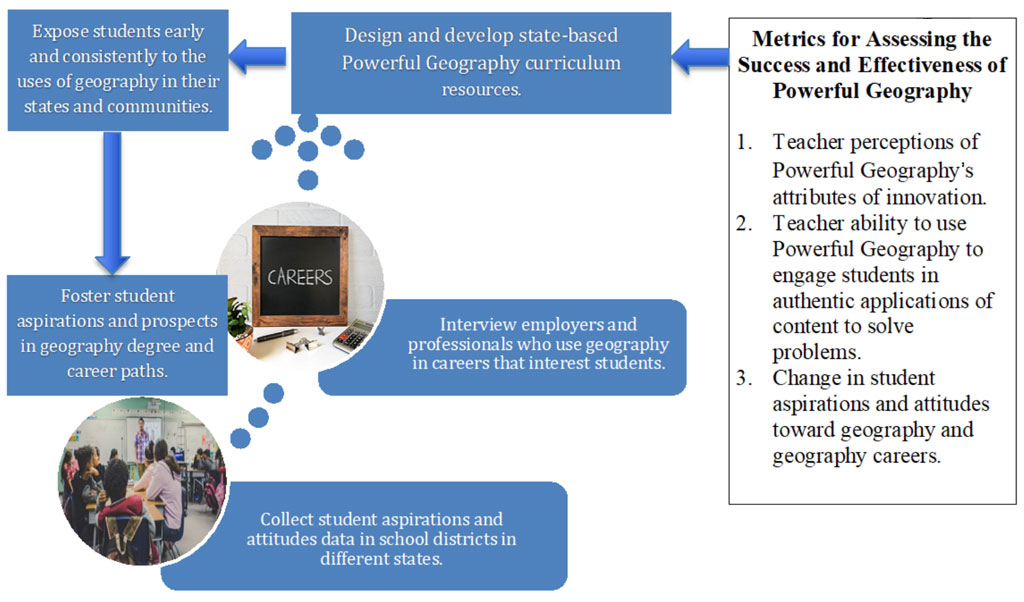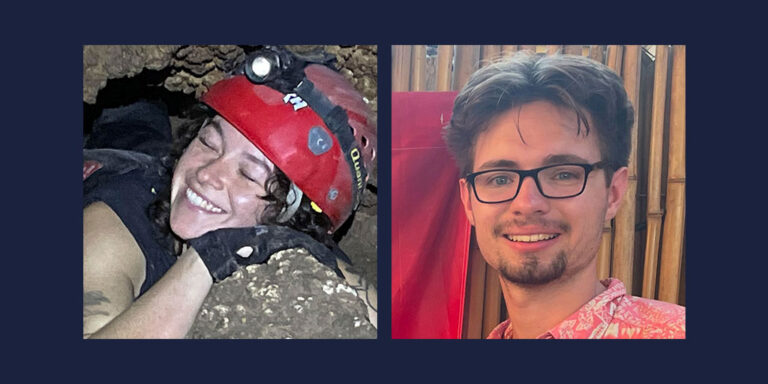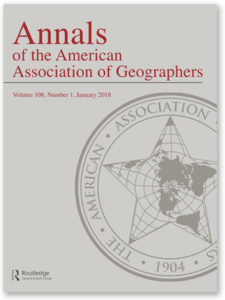Powerful Geography at Work
By Michael Solem, Brendan Vander Weil, Richard G. Boehm and Joann Zadrozny
Growing and diversifying the geography discipline and workforce is a complex challenge that needs to be met with an “all-hands-on-deck” effort by teachers, geographers, and geography organizations. A recent AAG newsletter article made the case that this process should start well before students graduate from high school. That article included a Call for Participation for a panel session on this topic, being organized for the 2023 AAG Annual Meeting.
Here, we highlight some of the work at the National Center for Research in Geography Education to address the nation’s priorities for broadening participation and workforce development. Powerful Geography is an initiative involving students, teachers, community college faculty, university researchers, and professional geographers and employer organizations. The project aims to raise awareness and appreciation among students about geography and its applicability to a wide array of job and careers.

Powerful Geography’s teaching and learning approach begins with teachers acquiring knowledge about the life and career aspirations of their students. Using this information, researchers seek out and interview professional geographers working in related career areas (environmental management, energy, transportation, social work, agriculture, business, and so forth). The two datasets are then used by schoolteachers and college faculty to design and develop state-based curriculum resources for schools and undergraduate programs.
Two current initiatives supported with NSF funding illustrate Powerful Geography at work. The AAG’s Encoding Geography research-practice partnership in Southern California is applying the Powerful Geography approach to support the development of an inclusive curriculum pathway in geocomputation. The RPP is currently interviewing professionals with a combined background in geography and computer science, using a protocol with questions aligned to a model of issues-based geographic inquiry. To date the RPP has interviewed professionals who use geocomputation for a variety of purposes including to monitor health equity, promote sustainable agriculture, improve city transportation, and enhance habitat management.
Accessible two-page digests are created for each interview with examples of questions, data, geography applications, a suggested learning activity, and a profile of the interviewed geographer. Schoolteachers and college faculty use the digests and other sources to design and develop grade-level curriculum resources that engage students in authentic applications of content to solve problems they care about.
View these helpful career digestsThe second project, Geoscience Exposure and Training in Texas (GET Texas), is working to create a place-based geoscience learning ecosystem (GLE) that includes informal educational institutions (Houston Museum of Natural Science and a local YMCA), high schools, a Hispanic Serving community college institution (Lone Star College), and a regional four-year, undergraduate-focused Hispanic Serving institution (Sam Houston State University). The fundamental purpose of this GLE is to raise awareness and appreciation of geoscience and geoscience careers among high school students in the greater Houston region, potentially encouraging them to consider and pursue geoscience-related postsecondary degrees. The GET Texas team uses student aspirations data to inform the content of the project’s informal and formal geoscience learning activities.
As the Encoding Geography RPP and GET Texas projects experiment with the Powerful Geography approach in a variety of courses and settings, researchers are measuring the extent that students gain confidence and interest in related degree programs and careers. Early indicators from external evaluations show promising returns on investment and geography educators at all levels have offered testimonies of their experiences with implementing Powerful Geography in their courses.
Powerful Geography’s “bottom up” and inclusive approach to teaching and learning can be replicated anywhere to design and develop curriculum resources attuned to student aspirations and workforce needs. In addition to the U.S., we are working with geography educators in Asia, Europe, Africa, and the Americas to coordinate the creation and implementation of Powerful Geography resources. The outcomes of this work will be published in an edited volume for the Springer Geography book series.
In the spirit of Geography Awareness Week (November 14-19), we hope the message of Powerful Geography resonates with a broader group of parents, policy makers, and other key stakeholders. We know from the U.S. Government Accountability Office’s 2015 report on geography education that geography is often perceived by the public to be a trivial subject and that it perennially suffers from relatively low levels of funding support. Changing this will not be easy, but it starts with understanding students’ aspirations and attitudes and conveying the relevance and applications of geography in schools across the country.
We consider the challenge of growing and diversifying the geography discipline and workforce to be a “north star” for geography education. In the coming year the Powerful Geography website will expand to include new state-based curriculum resources connecting students and teachers with professional geographers and geography degree programs. We continue to pursue external funding to support this work and invite anyone interested in being involved to contact us at ncrge@aag.org.
DOI: 10.14433/2017.0121
This material is based upon work supported by the National Science Foundation under Grants No. 2031418, 2031407, and 2031380 (Collaborative Research: Encoding Geography – Scaling up an RPP to achieve inclusive geocomputational education). Any opinions, findings, and conclusions or recommendations expressed in this material are those of the author(s) and do not necessarily reflect the views of the National Science Foundation.
NCRGE is a research consortium with headquarters at the American Association of Geographers and Texas State University.


